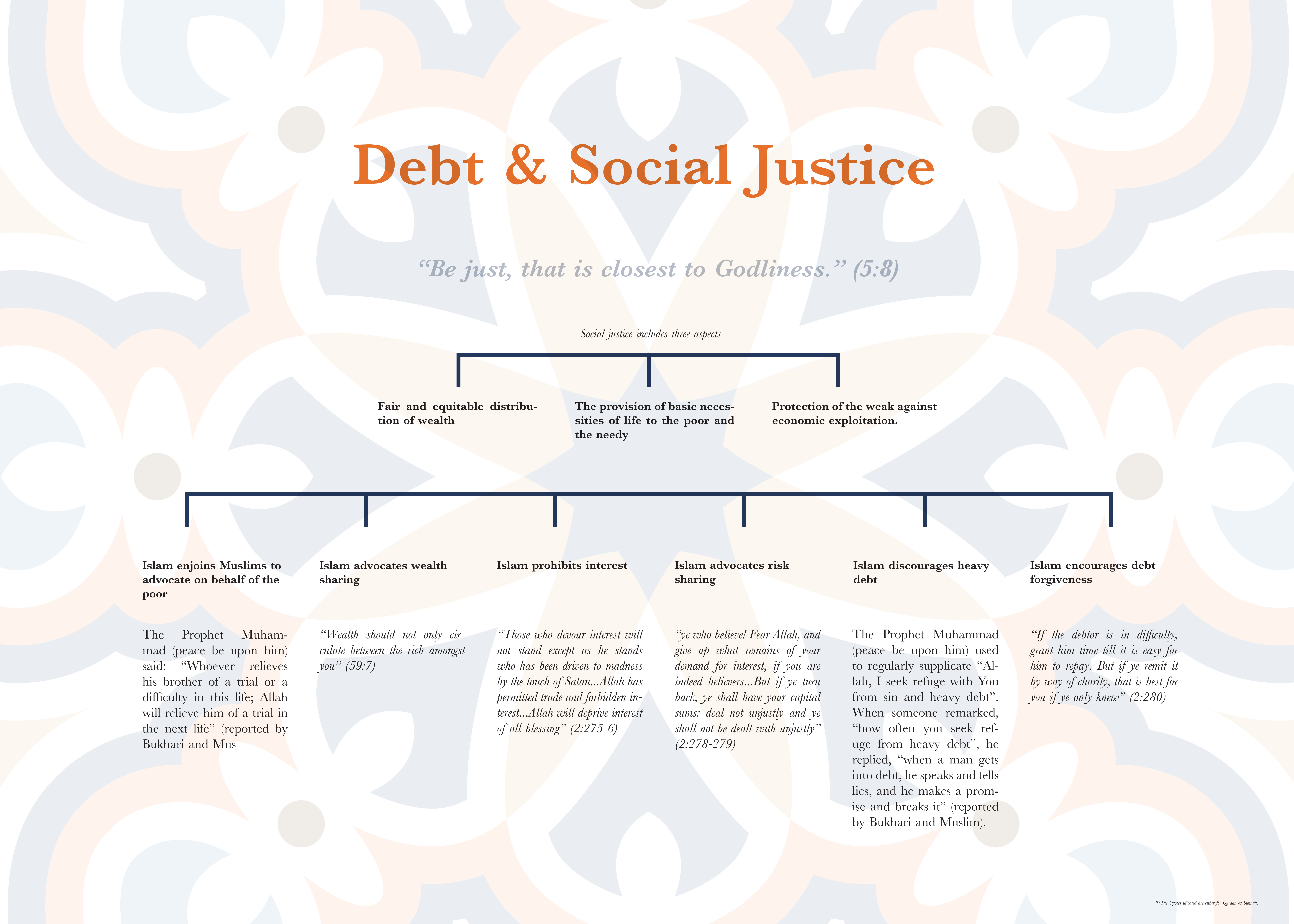Debt and social justice
by WaedM

This work has been commented by 1 curator(s). Read the comments
Title
Debt and social justice
Headline
Debt and social justice
Concept author(s)
Wa'ed Ibrahim
Concept author year(s) of birth
1992
Concept author(s) contribution
The work was done by me from A to Z. Including collecting the information, illustrating and designing the poster.
Concept author(s) Country
United Arab Emirates
Friendly Competition
Competition category
Visual communication practice
Competition subcategory
static
Competition field
academic
Competition subfield
student
Subfield description
Multimedia Design Major College of Architecture, Art and Design American University of Sharjah
Check out the Debt. 2012 outlines of Memefest Friendly competition.
Description of idea
Describe your idea and concept of your work in relation to the festival outlines:
As the whole idea of this year's competition is to discuss the issue of debt, I wanted to look at debt within the context of Islam. The current international debt crisis in cannot be studied within its narrow connotations; rather, it is a question of “social justice” a supreme concept in Islam. And since how Islam deals with debt reflects on the whole region (Middle East), it is only logical to try to explore what rules Islam set regarding debt, and how these rules eventually reflect on the lives of people in this region.
What kind of communication approach do you use?
Mainly it is a chart or a diagram. But in the same time it is a poster.
What are in your opinion concrete benefits to the society because of your communication?
When people are introduced to the Islamic financial approach I am hoping they will begin to see how adopting this kind of system will help solve the financial crisis. If not I still believe that this piece of communication implies certain principles that would improve the financial applications between people.
What did you personally learn from creating your submitted work?
I was able to further understand specific verses in the Qur'an as well as some of Prophet Muhammad narrated stories on Debt. This clarified the fact that Islam found a solution for all everyday problems, specially those that deal with money.
Why is your work, GOOD communication WORK?
Because it does introduce people to an aspect of islam that they don't know exists and in the same time offers solution to a problem that is increasing everyday
Where and how do you intent do implement your work?
I believe this work could be introduced to students in business schools as well as the public to make them understand debt within an Islamic context
Did your intervention had an effect on other Media. If yes, describe the effect? (Has other media reported on it- how? Were you able to change other media with your work- how?)
No, not yet.
Curators Comments

Aleksandar Maćašev
Contemporary common thinking about capitalism frequently, as quaint as it may seem, starts with Max Weber and his "The Protestant Ethic and the Spirit of Capitalism". In a very persuasive, but somehow deceptive way we have been taught to recognize this unbreakable bond between capitalism and one of the major groupings of the Christian dogma, although we have been shown that many other religions have also influenced the development of contemporary commerce, banking and monetary systems.
“Debt and social justice” gives an unexpected and effective angle from the direction of Islam. This makes the whole thing even more interesting in light of modern western Islamophobia. No matter how trained the “free thinkers” are in political correctness there's always a ring of hypocrisy every time a western statesman talks about Islam as the religion of peace.
Personally I consider pretty much every religious dogma to have brought more bad than good. All things considered and mentioned above might give positive momentum towards the ideal of freedom from debt.
The work might be improved further by using one Qur'an quotation per piece and making it more visually attractive.
“When a man gets into debt, he speaks and tells lies, and he makes a promise and breaks it.”
